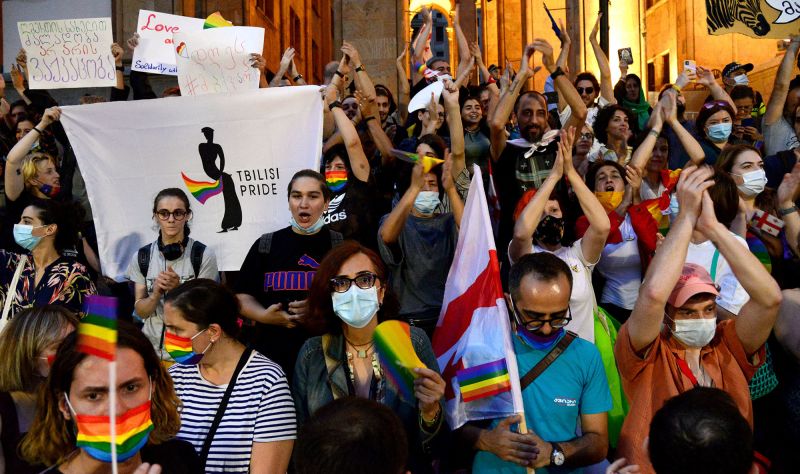Within the heart of Georgia, recent developments have surfaced in which the Georgian Parliament has approved a controversial law that seeks to limit the rights of LGBTQ+ individuals in the society. Despite strong opposition from various sectors, this decision has led to deep discussion regarding democratic processes in Georgia and human rights globally.
In a contentious decision that has garnered international attention, the Georgian Parliament has validated a certain piece of legislation that significantly curbs the rights and freedoms of LGBTQ+ individuals. This law, which passed by a narrow margin, is seen as undermining the inalienable rights of countless citizens who identify as part of the LGBTQ+ community.
Despite being seen as progressive for a post-Soviet state, Georgia has often grappled with the tension between maintaining a conservative, religious mindset and adapting to more liberal Western ideologies. This recent legislation appears to be a marked shift towards traditional values, which could jeopardize Georgia’s bid to enhance its image as a liberal democracy.
The new law restricts the ability of LGBTQ+ individuals to express their identity freely, particularly in public spaces. The law further prohibits any attempt to change one’s gender identity, a provision that directly affects transgender individuals. This limitation not only quashes their personal freedoms and fundamental human rights but also exposes them to potential harassment and violence within an increasingly intolerant society.
Georgian Parliament’s move stands as a counteraction to the so far progressive trend in various parts of the world. There has been a noticeable swing toward accepting individuals who identify as LGBTQ+ and their rights in recent years, emotionally symbolized by the legalization of same-sex marriage in multiple countries. However, Georgia’s new law denotes a regression from this international trend.
The passage of the law has been met with vigorous opposition from civil society groups, LGBTQ+ organizations, and some members of parliament who have deemed it discriminatory. The opponents argue that the law develops a dangerous precedent of codifying prejudice within the country’s legislative framework, undermining the principles of equality, diversity, and personal autonomy.
Controversially, critics of the law believe that it contravenes numerous international human rights standards to which Georgia has committed itself. They specifically emphasize Georgia’s obligations under the European Convention on Human Rights regarding the protection of minority groups. As such, many are calling for international pressure, particularly from the European Union, to help reverse this controversial legislative move.
Yet, the law’s proponents argue that it is meant to uphold Georgian traditional values and societal norms. They maintain that Georgia as a sovereign state has the right to legislate in accordance with the majority’s beliefs and customs. However, this argument does not distance from the fact that such an approach risks creating a more divided society.
The approved law seems a bleak indicator of the harassment and marginalization the LGBTQ+ community is subjected to in Georgia. On ground reality is even harsher than what legal provisions lay out. Conditions for this community are likely to be highly distressing unless substantial societal and legislative change is realized.
Besides, the law poses a substantial risk to Georgia’s international reputation and relationships. Connection with Europe and the wider international community may be strained due to the divergent views on human rights and this particular legislation. Georgia has much to lose, not just in terms of its international image, but also potentially stagnating political relationships and potentially decreased foreign aid.
The Georgian Parliament’s decision to approve legislations curtailing LGBTQ+ rights is a deplorable reflection of the challenges towards inclusivity and diversity many societies still face today. It gives us a grim reminder that rights, often taken for granted, can be easily snatched away, and the struggle for equality is very much real and far from over. The global community must now watch closely and determine how they choose to react to this blatant disregard for the authentic projection of human rights.




